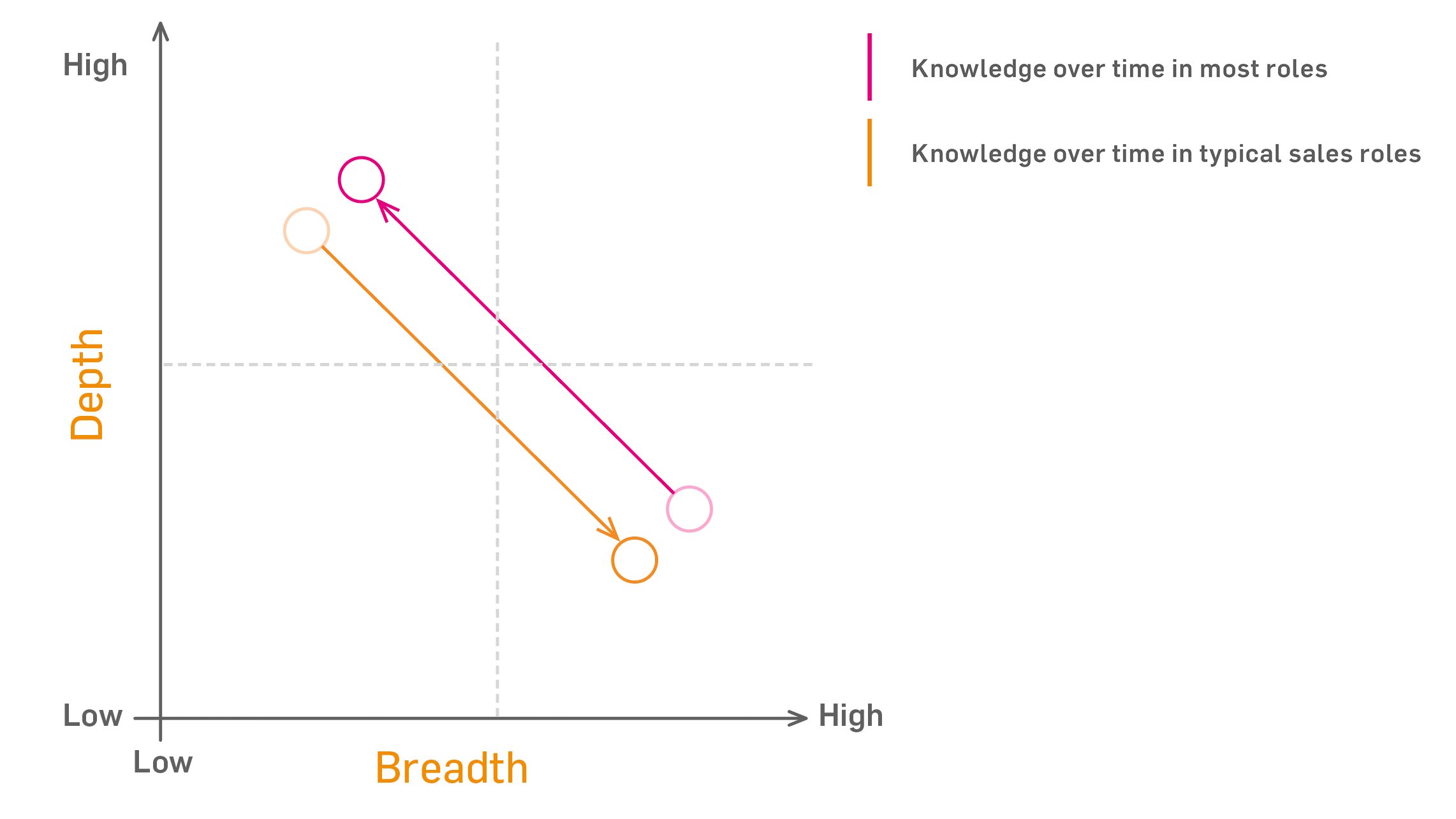There’s a classic tension in any kind of training— should it stay general, or get deep and specific? Sales is no different. Milly Gladstone shares how understanding the unique nature of the sales role helps us handle the tension.
It’s difficult as L&D and Sales Enablement professionals to choose between specific and generic sales enablement. On the one hand, keeping content more generic and skills-focused gives that space for discussion. On the other, making it specific paves a solid foundation for sellers in a particular function or job role. The trouble is, once we start going down the path of carving job-specific learning, we limit the cohort pool and end up with a web of quite-similar-but-not-exactly-the-same content.
So, should upskilling happen broadly across a range of sales skills and services, or is it better to have sellers who are product experts?

The truth is, probably a bit of both. Interestingly, sales is unique in that it’s a role that often gets more generalist as seniority increases. Usually, we think of this process being the opposite way round. If we think about a university course, the ‘101’ or introductory course tends to give an overview of everything, and year-by-year—or even degree by degree as students pursue masters’ or PhDs—the specialisms emerge and the knowledge gets deep. That’s how ‘experts’ get such a title. In sales, however, it’s often easier to start salespeople selling one specific product or service. It’s with time and experience that they’re able to branch into other sales areas and widen their knowledge across the business.

What we do see in the sales training we design and deliver at Interactive Workshops is that it’s the skills that need consistent focus—no matter the experience level of the seller or their deep product knowledge. Sellers have the challenge of building rapport and connection but with the next breath having to bat back negotiations. Of having to reach out and make new connections, then ensure a smooth handover to the customer experience team. They’re constantly having to draw from a broad and varied skillset—and there’s always room for improvement. That’s where L&D comes in.
Below are the top three tips we’ve cultivated from our own experience training sales professionals. See if any of these spark ideas for a sales workshop:
1. Practice Makes Perfect
Even though sellers spend all day on calls or in meetings selling to real-life customers, taking time out to practice is essential. Sharpening the saw and having the space to try out a new elevator pitch, or hone negotiation skills, is well worth the investment. Seeking feedback from the experts or peers who are there can also boost progress in the room.
2. Be Open to New Skills
The world of sales is changing. Consumers don’t want to be ‘sold’ to anymore. Gone are the days of the wheeler-dealer promising anything and everything to get a sale over the line. Instead, buyers—especially in the B2B space—are seeking the long-term benefit a partnership can bring. Staying open-minded in skills training is beneficial, even for the most experienced sellers.
3. Share Knowledge
The intrinsically competitive nature of sales means that the biggest sources of knowledge in companies—the sellers themselves—remain untapped. Some of the best workshops I’ve run give space to share stories and troubleshoot, especially when there are senior salespeople in the room. Chances are, someone has been in that situation before, or has an idea on how to overcome that issue.
